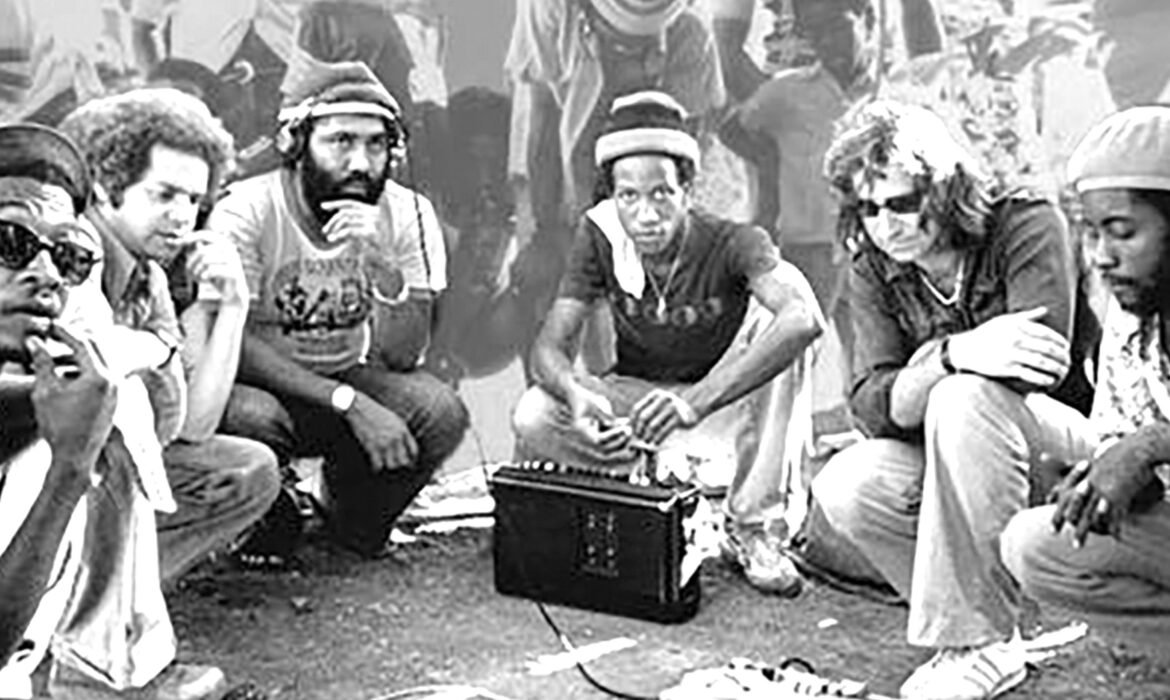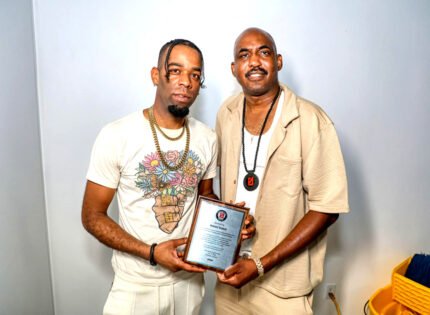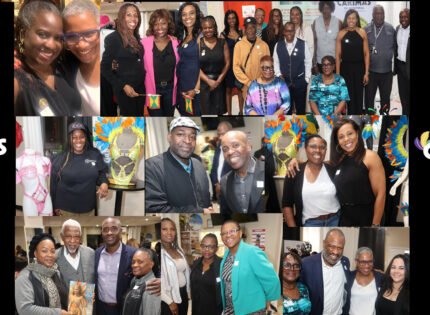 As we enter Black History Month for 2023, we continue to examine the evolution of popular music in Jamaica. In the last edition of The Community Contact, we looked at Ska and it’s universal influence all over the world. We saw how Black-American rhythm and blues gave birth to the popular Jamaican style of dance music and how it had a large impact on Britain’s punk and new wave scene and California’s punk scene in the States through groups like Fishbone and No Doubt. Many often confuse rock steady and ska since they are so similar in style. Rock Steady however is quite considerably slower. Guitar and piano tracks started to experiment more and more with occasional accents on the offbeat. The name “rock steady” came from the Alton Ellis song “Rocksteady” . Ellis is considered by many as “The Godfather Of Rock Steady”. Others, considered pioneers in the style are Hopeton Lewis, Roy Shirley and Derrick Morgan. The slowed down pace was most likely not suggested by a Jamaican musician but rather a guitarist for San Fernando, Trinidad in Lynn Taitt who asked musicians to slow down their tempo on the recording of his big hit in Jamaica called “Take It Easy,” Taitt called “Rock Steady” slow ska. Legendary producer Lee “Scratch” Perry cut some great sounding sides in the rock steady style as did Ken Boothe, The Jamaicans, The Gaylads, The Silvertones, The Techniques as well as The Paragons who had a hit in 1967 with “The Tide Is High” which was written by the group’s leader John Holt and later was big hit for American new wave legends Blondie in 1980. Again the rock steady style was modelled after Black-American r’n’b groups. Prince Buster’s Jamaican hit “Sharing You” was just a cover of Alabama gospel and r’n’b singer Mitty Collier’s original. The Techniques’ “Queen Majesty” was a cover of “Minstrel Queen” by legendary Chicago soul group The Impressions, which featured “The Iceman” Jerry Butler and the late, great Curtis Mayfield. Another group who modelled themselves after The Impressions was a Kingston trio consisting of Bunny Wailer, Peter McIntosh and Bob Marley who called themselves The Wailing Wailers. They later shortened their name and enlarged their personnel and made international history but more on that in the next issue of The Community Contact. Phyllis Dillon, a singer from the Jamaican town of Linstead in the St. Catherine Parish who had hits in the 60’s with “Don’t Stay Away”, “It’s Rocking Time” and a cover of Bettye Swann’s “Make Me Yours”, was known as “The Queen Of Rock Steady”.
As we enter Black History Month for 2023, we continue to examine the evolution of popular music in Jamaica. In the last edition of The Community Contact, we looked at Ska and it’s universal influence all over the world. We saw how Black-American rhythm and blues gave birth to the popular Jamaican style of dance music and how it had a large impact on Britain’s punk and new wave scene and California’s punk scene in the States through groups like Fishbone and No Doubt. Many often confuse rock steady and ska since they are so similar in style. Rock Steady however is quite considerably slower. Guitar and piano tracks started to experiment more and more with occasional accents on the offbeat. The name “rock steady” came from the Alton Ellis song “Rocksteady” . Ellis is considered by many as “The Godfather Of Rock Steady”. Others, considered pioneers in the style are Hopeton Lewis, Roy Shirley and Derrick Morgan. The slowed down pace was most likely not suggested by a Jamaican musician but rather a guitarist for San Fernando, Trinidad in Lynn Taitt who asked musicians to slow down their tempo on the recording of his big hit in Jamaica called “Take It Easy,” Taitt called “Rock Steady” slow ska. Legendary producer Lee “Scratch” Perry cut some great sounding sides in the rock steady style as did Ken Boothe, The Jamaicans, The Gaylads, The Silvertones, The Techniques as well as The Paragons who had a hit in 1967 with “The Tide Is High” which was written by the group’s leader John Holt and later was big hit for American new wave legends Blondie in 1980. Again the rock steady style was modelled after Black-American r’n’b groups. Prince Buster’s Jamaican hit “Sharing You” was just a cover of Alabama gospel and r’n’b singer Mitty Collier’s original. The Techniques’ “Queen Majesty” was a cover of “Minstrel Queen” by legendary Chicago soul group The Impressions, which featured “The Iceman” Jerry Butler and the late, great Curtis Mayfield. Another group who modelled themselves after The Impressions was a Kingston trio consisting of Bunny Wailer, Peter McIntosh and Bob Marley who called themselves The Wailing Wailers. They later shortened their name and enlarged their personnel and made international history but more on that in the next issue of The Community Contact. Phyllis Dillon, a singer from the Jamaican town of Linstead in the St. Catherine Parish who had hits in the 60’s with “Don’t Stay Away”, “It’s Rocking Time” and a cover of Bettye Swann’s “Make Me Yours”, was known as “The Queen Of Rock Steady”.
The Rastafarian influence which had been largely suppressed during the later days of mento and ska begun to surface during the rock steady era. “Rude Boy Gone A Jail” by The Clarendonians and “Judge Dread” by Prince Buster marked the real beginning of the Rastafarian movement making its influence felt in Jamaican popular music.
And of course Reggae would then enter the picture..
More next issue…
“… And Then Comes Rock Steady”













